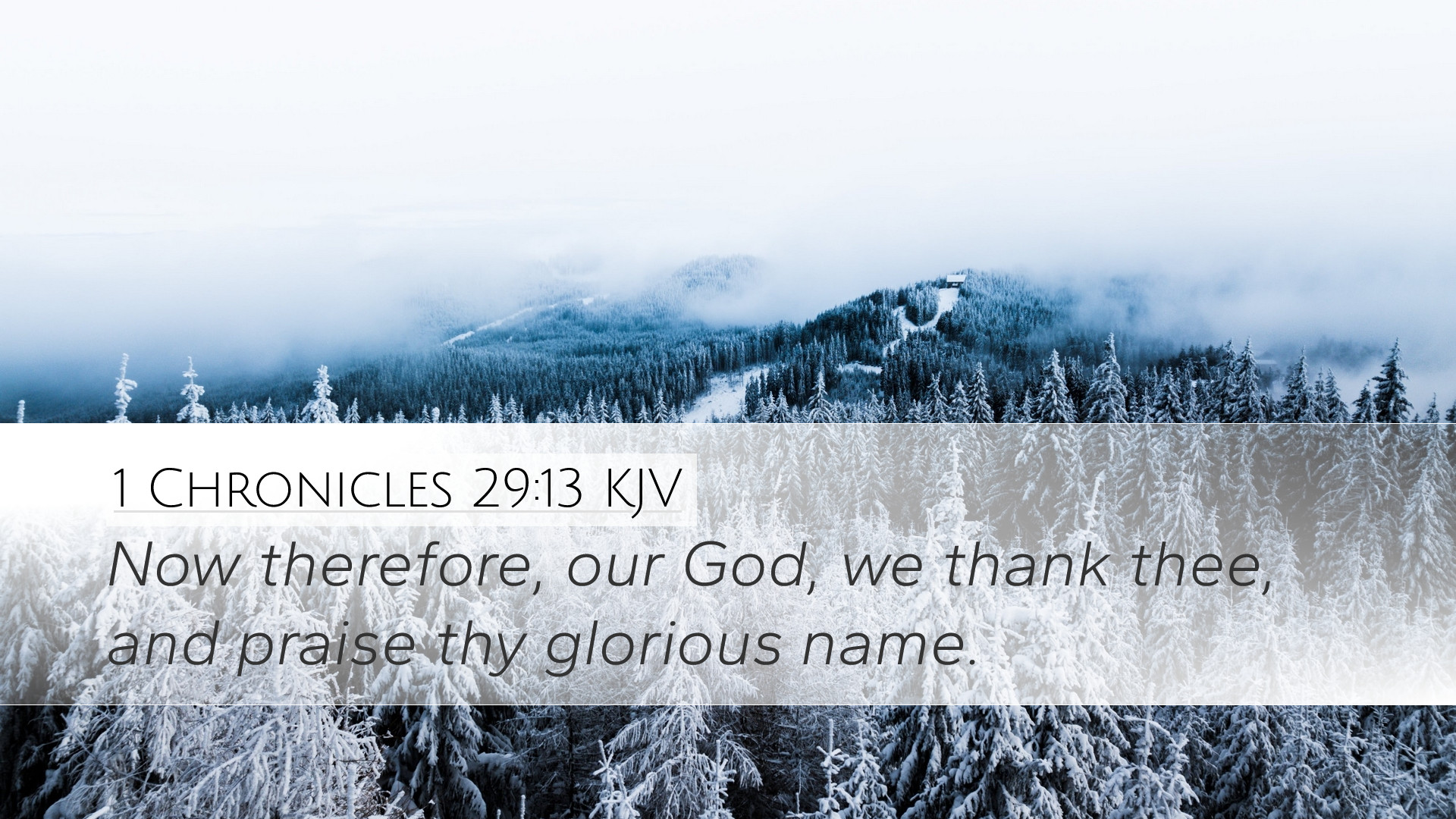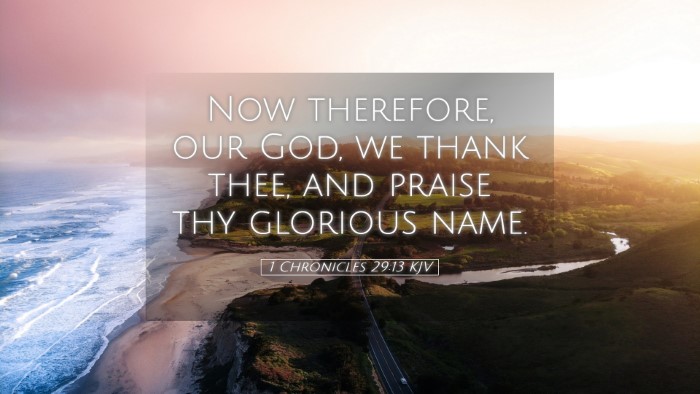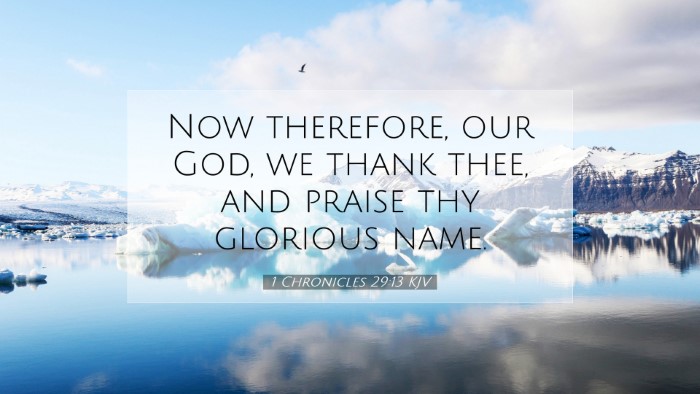Commentary on 1 Chronicles 29:13
Verse: "Now therefore, our God, we thank thee, and praise thy glorious name."
Introduction
The verse from 1 Chronicles 29:13 encapsulates a profound moment of gratitude and worship as articulated by King David in his final prayer of dedication for the temple. This moment serves as a theological pivot point, reflecting both reverence for God and acknowledgment of His greatness. Drawing from the insights of Matthew Henry, Albert Barnes, and Adam Clarke, we delve deeper into the significance of this verse.
The Context of the Passage
The chapters leading up to this moment depict David's preparation for the temple that was to be built for the worship of the Lord. David’s desire to construct a permanent dwelling for God arose from his recognition of God’s greatness and holiness. The rich offerings contributed by the leaders and the people symbolize a collective acknowledgment of God’s providence and blessings.
Theological Insights
-
Divine Sovereignty: The phrase "our God" emphasizes the personal relationship believers have with God. As noted by Matthew Henry, this connection signifies that while God is sovereign over all creation, He has chosen to relate to His people intimately.
-
Gratitude in Worship: The act of thanking and praising God reflects the essential attitude required of His followers. Albert Barnes highlights that gratitude is a necessary response to God’s gifts and grace, positioning worship as an acknowledgment of God’s generosity.
-
The Nature of God’s Name: The term "glorious name" opens a window to understanding the character and attributes of God. Adam Clarke points out that God's name represents His nature, incorporating His holiness, love, and justice, calling believers to honor and revere Him above all.
Literary Considerations
The structure of the prayer denotes a powerful shift from the material aspects of temple preparation to a spiritual focus on worship. The invocation of "our God" together with the outpouring of praise illustrates a recognition of human limitations against divine glory.
Exegetical Exploration
Examining the Hebrew text reveals deeper layers of meaning. The word for "thank" (וַאֲודֶה, v'odah) indicates an action of confession and acknowledgment, revealing that thanksgiving is connected to recognizing God’s past provision. Similarly, the word for "praise" (וּלְבָרֵךְ, u'lebarekh) not only denotes praise but also carries the implication of declaring God’s greatness publicly, which is pivotal for the community of believers.
Practical Application for Ministry
This passage serves as a model for corporate worship and individual faith practices. Pastors and church leaders can draw from David's example of prioritizing gratitude in their congregational prayers. By helping congregants articulate their thanks to God, leaders create an atmosphere of worship that invites God’s presence.
Conclusion
1 Chronicles 29:13 stands as a rich source of theological reflection on the nature of God, the appropriateness of worship, and the role of gratitude in the life of a believer. This verse encourages us to consistently turn our hearts and voices towards thanking and praising God, acknowledging that all blessings come from Him. The insights from Matthew Henry, Albert Barnes, and Adam Clarke enrich our understanding and apply timeless truths that remain relevant for entrepreneurs, scholars, and everyday believers today.


